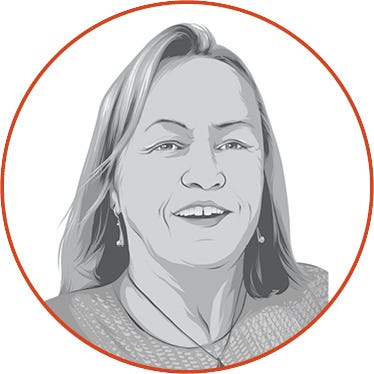
We got milk, think rice, and know beef is what’s for dinner. Turns out cotton is the fabric of our lives and export markets like our soybeans and our citrus.
How do we know this? All of these things are the results of check-off programs for those commodities.
Farmers may not always see those intangible impacts on markets and demand, said Louisiana farmer Keven Berken, a founding member of the Louisiana Rice Political Action Committee and long-time leader for the Louisiana Rice Promotion Board. Those impacts are more difficult to quantify. And the people paying into the checkoff programs – farmers – may not see promotional efforts.
“Cotton farmers are not the target audience of people who need to be educated about agriculture,” said Georgia Cotton Commission Executive Director Tyler Sills.
What’s more visible are the on-farm impacts of research funded by checkoffs. In Louisiana, rice farmers pay 3 cents per hundred weight toward promotion and contribute 5 cents per hundred weight to research. Annually, about 5% to 6% of farmers request a return of their check-off contribution.
If not for check-off funds, Berken said, rice farmers in Louisiana “would still be doing things the old way.” He points particularly to the development of Provisia and Clearfield rice varieties with herbicide-resistant traits. And he’s particularly thankful for those traits and other research that addresses the challenges of red rice and weedy rice.
“Because of red rice you had to do tillage practices that minimized the impact of red rice and weedy rice,” Berken recalled. As a result of the checkoff-funded research, he said, rice farmers now use less tillage, less water, and less pesticide to grow crops optimized for yield and quality.
Politicians seek transparency
From Berken’s viewpoint, the single-digit percentages that he pays into the check-off program add up to profit opportunity on his farm. A group of organizations and elected officials pushing check-off legislation in Congress, however, see the situation differently. Sen. Cory Booker, D-N.J., a sponsor of the most recent checkoff-curbing legislation, notes the millions of dollars collected through the check-off programs and sees reason to demand a higher level of transparency. Booker says the Opportunities for Fairness in Farming (OFF) Act is designed to “prohibit certain wasteful, anti-competitive, and deceptive behavior from checkoff boards.”
Though checkoff boards are restricted from lobbying or injecting themselves into any political issues, leaders of the organizations note that the boards are audited by the U.S. Department of Agriculture’s Agriculture Marketing Service at least every two years. Oversight by AMS may be the one consistent regulation governing the 22 checkoff boards that now operate in the United States. The National Agricultural Law Center notes: “Regardless of the statutory authority, the day-to-day management of each program is overseen by a research and promotion board and its staff that is overseen by AMS. The board members are nominated by the industry and appointed by the Secretary of Agriculture.”
Legal challenges to checkoff boards periodically move in fits and starts through Congress and rise in the court system, occasionally reaching the U.S. Supreme Court. The most notable outcome of these challenges has been to give producers the right to request a return of their contribution.
Impacts are far-reaching
The impacts of the United Soybean Board stretch from on-farm research into challenges such as soybean cyst nematode to opening foreign markets, promoting soy-based alternative fuels, and ensuring farmers have the necessary infrastructure to ship their product. Steve Reinhard, an Ohio farmer who serves as USB vice chair, believes USB is the only checkoff board reviewing infrastructure needs.
As a result of USB’s research into the need to dredge the Mississippi River to meet the industries transportation needs, Mac Marshall, USB vice president of market intelligence, said “a $2 million investment unlocked hundreds of millions in federal funding.” The result, Marshall said, is an improved transportation corridor. The work, he said, made an agriculture-wide economic impact.
Soybean farmers, Reinhard said, realized a 10-cent-a-bushel advantage. But that’s just one project. Reinhard said USB returns $12.34 for every $1 farmers invest in the checkoff.
Without checkoff programs, Sills said, farming would look much like it did in 1965, when the Georgia board was created in a producer vote. He particularly points to the beltwide success of varieties developed by University of Georgia cotton breeder Peng Chee.
“If we didn’t have somebody like Peng doing that research with producer funds,” Sills said, “do you think the industry would do it?”
About the Author(s)
You May Also Like






